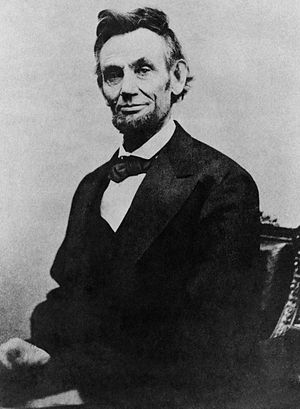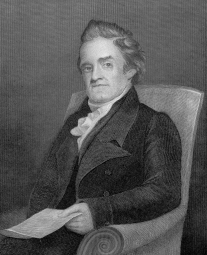 Image via Wikipedia
Image via Wikipedia
"More things are wrought by prayer than this world dreams of." Alfred Lord Tennyson
In 1863, the United States of America was losing the War Between the States.
In fact, things were so bad that the US Congress decided that the entire nation ought to appeal to God for help. They passed a resolution to designate April 30, 1863, as a national day of prayer and fasting.
Although he is much better known for his Emancipation Proclamation, President Lincoln signed the following proclamation into law on March 30, 1863.
Whereas, the Senate of the United States, devoutly recognizing the Supreme Authority and just Government of Almighty God, in all the affairs of men and of nations, has, by a resolution, requested the President to designate and set apart a day for National prayer and humiliation.
And whereas it is the duty of nations as well as of men, to own their dependence upon the overruling power of God, to confess their sins and transgressions, in humble sorrow, yet with assured hope that genuine repentance will lead to mercy and pardon; and to recognize the sublime truth, announced in the Holy Scriptures and proven by all history, that those nations only are blessed whose God is the Lord.
And, insomuch as we know that, by His divine law, nations like individuals are subjected to punishments and chastisements in this world, may we not justly fear that the awful calamity of civil war, which now desolates the land, may be but a punishment, inflicted upon us, for our presumptuous sins, to the needful end of our national reformation as a whole People? We have been the recipents of the choicest bounties of Heaven. We have been preserved, these many years, in peace and prosperity. We have grown in numbers, wealth and power, as no nation has ever grown. But we have forgotten God. We have forgotten the gracious hand which preserved us in peace, and multiplied and enriched and strengthened us; and we have vainly imagined, in the deceitfulness of our hearts, that all these blessings were produced by some superior wisdom and virtue of our own. Intoxicated with unbroken success, we have become too self-sufficient to feel the necessity of redeeming and preserving grace, too proud to pray to the God that made us!
It behooves us then, to humble ourselves before the offended Power, to confess our national sins, and to pray for clemency and forgiveness.
Now, therefore, in compliance with the request, and fully concurring in the views of the Senate, I do, by this my proclamation, designate and set apart Thursday, the 30th. day of April, 1863, as a day of national humiliation, fasting and prayer. And I do hereby request to all the People to abstain, on that day, from their ordinary secular pursuits, and to unite, at their several places of public worship and their respective homes, in keeping the day holy to the Lord, and devoted to the humble discharge of the religious duties proper to that solemn occasion.
All this being done, in sincerity and truth, let us then rest humble in the hope authorized by the Divine teachings, that the united cry of the Nation will be heard on high, and answered with blessings, no less than the pardon of our national sins, and the restoration of our now divided and suffering Country, to its former happy condition of unity and peace.
The question is, did God make any response to the prayers of his people? Yes, he did. Approximately sixty days later, during the first week of July, 1863, the United States won two major battles. The Battle of Vicksburg and the Battle of Gettysburg were the turning points of the war. The people who prevailed in these battles were the ones who were united in their appeal to heaven.
 Image via Wikipedia
Image via Wikipedia
![Reblog this post [with Zemanta]](http://img.zemanta.com/reblog_b.png?x-id=43b162af-c04a-49c3-ae60-4ca95f06bb7d)